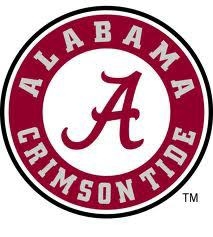The Games Southerners Play
It is said that in the South, college sport is a form of religious expression – football in the Deep South, basketball in the mid-Atlantic. We observe occasions when our favorite teams collide with gut-wrenching, sweat-soaked fervor that one also associates with snake-handling, foot-washing and speaking in tongues. Especially, speaking in tongues, as in: Gawdamighty, lookitat suckahrun. If he’s our sucka, we experience salvation; if he’s the other team’s sucka, we feel like Jonah, swallowed by the whale.
My good wife and I were sitting in the Louisiana Superdome some years ago, watching Alabama play Ohio State in the Sugar Bowl. Paulette observed, “A thousand years from now, when archaeologists dig up this place, they’ll say that this is where we worshiped.” She’s a wise and perceptive woman. Alabama happened to win that day. We were in a state of grace that bordered on religious transcendence.
These days, we still experience the thrill of victory and the agony of defeat when a team we care about takes the field or court, though we are a little mellower about it than we used to be. Age may have something to do with it. But many of our friends and relatives still worship at the shrine with enthusiasm undiminished.
My late uncle Ed was a perfect example of unbridled sports worship. His favorite team was the Alabama Crimson Tide – football, of course. He thought basketball was something to keep the student body occupied between the bowl game and spring practice. If you are a Tide fanatic, your everlasting arch enemy is anyone who is devoted to the Auburn Tigers, the cross-state rival. A Tide victory over Auburn on the last Saturday in November ensures Alabama faithful a warm and self-righteous winter. A loss – as happened this past Saturday -- brings thoughts of self-immolation, a spike in Prozac prescriptions.
Uncle Ed never attended Alabama, but he was the school’s most devout follower, and the bane of every Auburn fan in the small town where he lived. Auburn’s mascot is a magnificent eagle, and if Alabama won the game, Uncle Ed would celebrate by hanging dead chickens over the front doors of the Auburn faithful, especially those who couldn’t take a joke.
My own situation is somewhat ambivalent. My mother went to Alabama, my father played football at Auburn. In Alabama, they call that a “mixed marriage,” though one friend says it’s more like coming from a broken home. On the last Saturday in November, my parents didn’t speak. Sometimes the silence could last well into December, depending on which team won and by how much, and whether the winner’s fan got a bad touch of the smart-mouth.
In my youth, I was an ardent Auburn fan. The Tigers had great teams during my teen years, while Alabama fell on hard times. I dreamed of attending Auburn, but to my dismay found that the school at that time offered no degree in communications. “I don’t intend to educate a bunch of disc jockeys,” an Auburn president told me some years later when I suggested the school start such a program. So I swallowed my disappointment and went to Alabama, about the time the late coach Paul “Bear” Bryant began guiding the Tide to national championships.
Over time, I’ve still had a soft spot in my heart for Auburn, and I have steadfastly been a fan of both schools’ athletic programs – except, of course, on the last Saturday in November. My Uncle Ed never used the word “traitor,” but his doubts about me fell somewhere in the neighborhood. Auburn, I should add, now has a very fine program in communications, and I don’t believe all of its graduates are disc jockeys.
Far wiser people than I have observed that in the South, college sport – especially football – has served as a form of redemption. During the early part of the last century, when Southern states labored under the burden of poverty and wide-spread illiteracy, football exploits became a source of great pride, far beyond the games themselves. If a Southern team whipped a Northern team, it translated into a general feeling of fiercely-defiant we’re-okayness. The Civil War was refought on countless Saturdays, and often, the result was different from the original.
Today, you’re likely to find the roster of any college athletic team to be a marvelous melting pot of young Americans from every corner of this country, and even from overseas. These young folks aren’t fighting the Civil War any more. It’s more like the foxholes of World War Two, where boys from Tennessee shared miseries with young fellows from New Jersey, and both learned that people are pretty much the same, regardless of where they’re from.
Still, we have our loyalties, our agonies and ecstasies, when athletes of our favorite teams take to the field or court. Our devotion has its excesses, of course, but the business is mostly harmless. For a few hours on Saturday afternoon, it distracts us from the woes of mundane life and keeps us out of trouble. Sort of like going to church or synagogue.

